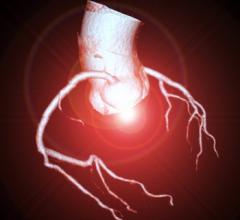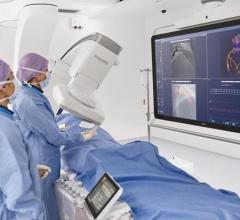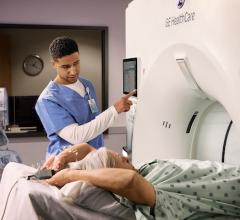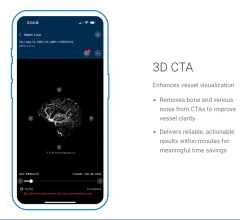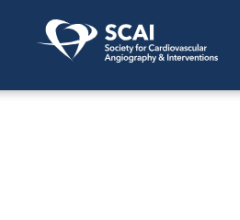November 27, 2007 - According to trial findings presented at RSNA, noninvasive CT angiography is as accurate as an angiogram in detecting coronary artery disease. Findings are based on the first two prospective multicenter 64-slice scanner trials.
In the CORE-64 (Coronary Artery Evaluation Using 64-Row Multidetector Computed Tomography Angiography) trial, researchers at nine international centers studied 291 patients scheduled to undergo invasive coronary angiography for suspected or unknown coronary artery disease. The study found that 64-slice multidetector CT angiography was highly accurate in detecting blockages of greater than 50 percent, with a sensitivity of 85 percent and a specificity of 90 percent. The noninvasive exam was equal in accuracy to invasive angiography in its ability to identify patients to be referred for angioplasty or bypass surgery.
"Reliable assessment of the presence of coronary blockages and accurate prediction of coronary revascularizations are feasible with 64-slice CT coronary angiography," said presenter Marc Dewey, M.D., radiologist at Humboldt University Berlin, Charité, Germany. "Patients with low to intermediate risk of having coronary blockages are most likely to benefit from coronary CT angiography, since in those patients the necessity of invasive angiography is greatly reduced."
The Assessment by Coronary Computed Tomographic Angiography of Individuals UndeRgoing InvAsive Coronary AngiographY (ACCURACY) Trial compared 64-row coronary computed tomographic angiography (CCTA) to quantitative coronary angiography (QCA). The results demonstrated that CCTA is highly accurate in detecting coronary blockages in chest pain patients referred for invasive coronary angiography and is also an effective noninvasive method to exclude obstructive coronary blockages.
"In a population of chest pain patients with a low to intermediate prevalence of obstructive coronary artery blockages, CCTA performed highly accurately compared to invasive coronary angiography," said presenter James K. Min, M.D., assistant professor of Radiology and Medicine at New York Presbyterian Hospital and director of the Cardiac Computed Tomography Laboratory and Cornell University Medical Center. "These findings demonstrate the high diagnostic performance of CCTA."
For more information: www.rsna.org


 January 09, 2026
January 09, 2026 

